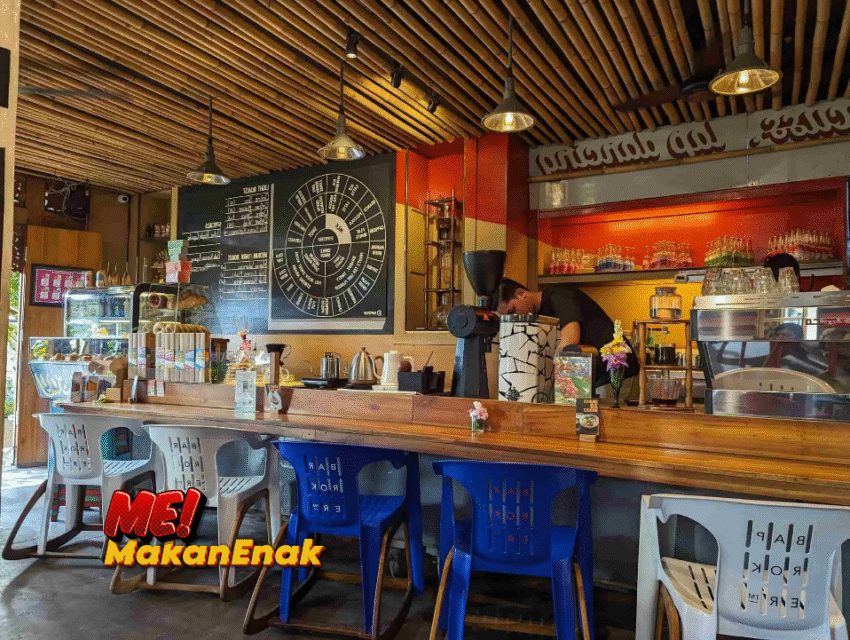makanenak – Bali has long been celebrated for its beaches, temples, and cultural richness. In recent years, however, another attraction has been quietly brewing—literally. Local coffee shops across the island are becoming a favorite stop for both international and domestic tourists. With a blend of traditional flavors, modern aesthetics, and a strong sense of community, Bali’s coffee culture is flourishing like never before.
Coffee Culture Meets Tourism
The rise of local coffee shops in Bali is closely tied to the island’s growing reputation as a global travel destination. According to data from the Indonesian Ministry of Tourism and Creative Economy, Bali welcomed more than 5 million international visitors in 2024, many of whom seek experiences beyond beaches and nightlife. Coffee shops are stepping in to fill that demand, offering travelers a place to relax, connect, and taste locally sourced beans.
Ubud, Canggu, and Seminyak have emerged as the top hubs for coffee lovers. Small independent cafés line the streets, each offering its own unique identity. Some focus on traditional Balinese brews made from beans grown in Kintamani and Munduk, while others highlight latte art and modern roasting techniques popular with younger crowds.
A Boost for Local Farmers
Behind the growing popularity of these coffee shops is a thriving local farming community. Bali’s fertile volcanic soil has long been suitable for coffee cultivation, particularly Arabica and Robusta varieties. Many cafés now partner directly with farmers, creating a supply chain that benefits local communities.
“This direct relationship not only ensures high-quality beans but also helps us improve our livelihood,” said I Wayan Suardika, a coffee farmer from Kintamani. “Tourists love knowing that their coffee comes straight from the farms in Bali.”
The farm-to-cup movement has become an essential part of the tourist experience. Visitors often book tours to coffee plantations before stopping by cafés to enjoy the final product. This synergy between agriculture and hospitality adds another layer to Bali’s tourism appeal.
Instagrammable Spaces and Digital Nomads
The aesthetics of Bali’s coffee shops also play a key role in attracting visitors. Many cafés are designed with open-air seating, bamboo interiors, and scenic views of rice fields or beaches. These settings are not just about comfort; they are made to be photographed. Instagram posts featuring latte art against lush backdrops have become a marketing tool in themselves.
Additionally, the growth of remote work and the rise of digital nomads have boosted the café scene. Bali, particularly Canggu and Ubud, has become a hotspot for freelancers and entrepreneurs from around the world. Coffee shops provide high-speed Wi-Fi, coworking-friendly seating, and a vibrant atmosphere that encourages productivity.
Blending Tradition with Innovation
One of the unique aspects of Bali’s coffee culture is the balance between tradition and innovation. Traditional Balinese coffee, often prepared by boiling finely ground beans directly in water, continues to be popular among locals and curious travelers. At the same time, international brewing methods such as pour-over, cold brew, and siphon are gaining traction.
Some cafés even experiment with fusion menus, combining Balinese flavors with global trends. Drinks like coconut latte, turmeric cappuccino, and palm sugar espresso showcase the creativity of local baristas. These innovations allow Bali to stand out in the competitive global coffee market.
Economic and Cultural Impact
The growing popularity of coffee shops has had a positive ripple effect on Bali’s economy. Not only are farmers and café owners benefiting, but so are artisans, furniture makers, and local suppliers who contribute to the café ecosystem. Moreover, these spaces are becoming cultural hubs where art exhibitions, live music, and community discussions are frequently held.
Tourism experts believe that Bali’s café culture adds resilience to its economy. By offering diverse experiences beyond traditional attractions, the island can appeal to a wider audience and extend visitor stays. This diversification is crucial, especially after the pandemic highlighted the risks of relying too heavily on one type of tourism.
Looking Ahead
As Bali continues to welcome millions of tourists each year, local coffee shops are expected to play an even greater role in shaping the island’s identity. The combination of authentic flavors, sustainable practices, and creative spaces ensures that coffee will remain more than just a beverage—it will be part of the Bali experience.
For many travelers, a trip to Bali is no longer complete without sipping a cup of locally brewed coffee while watching the sunrise over the rice fields or sunset by the ocean. Coffee has become more than a drink; it is now a symbol of Bali’s evolving culture and hospitality.


